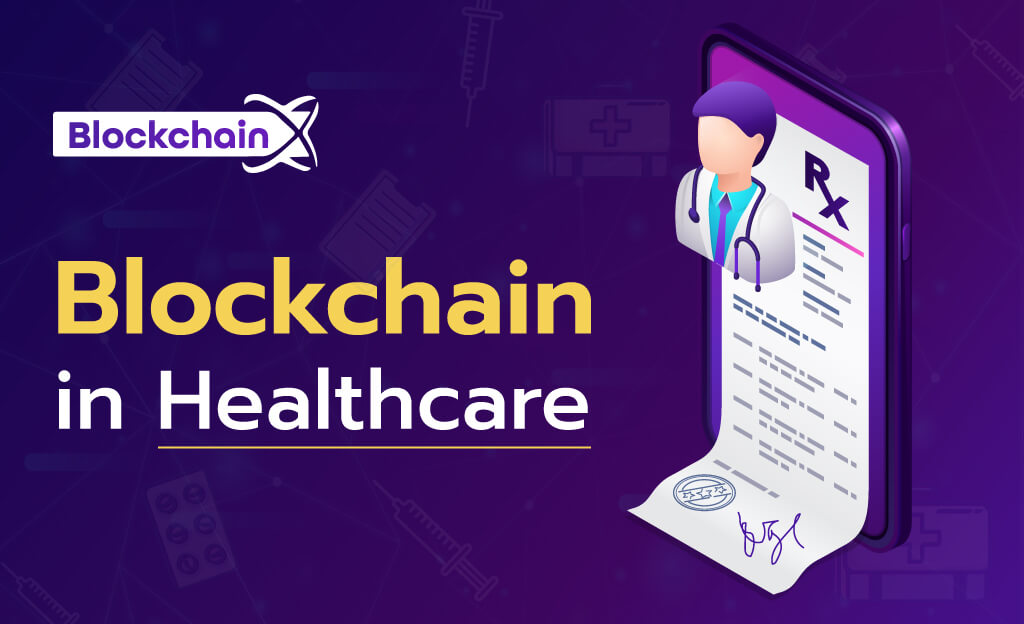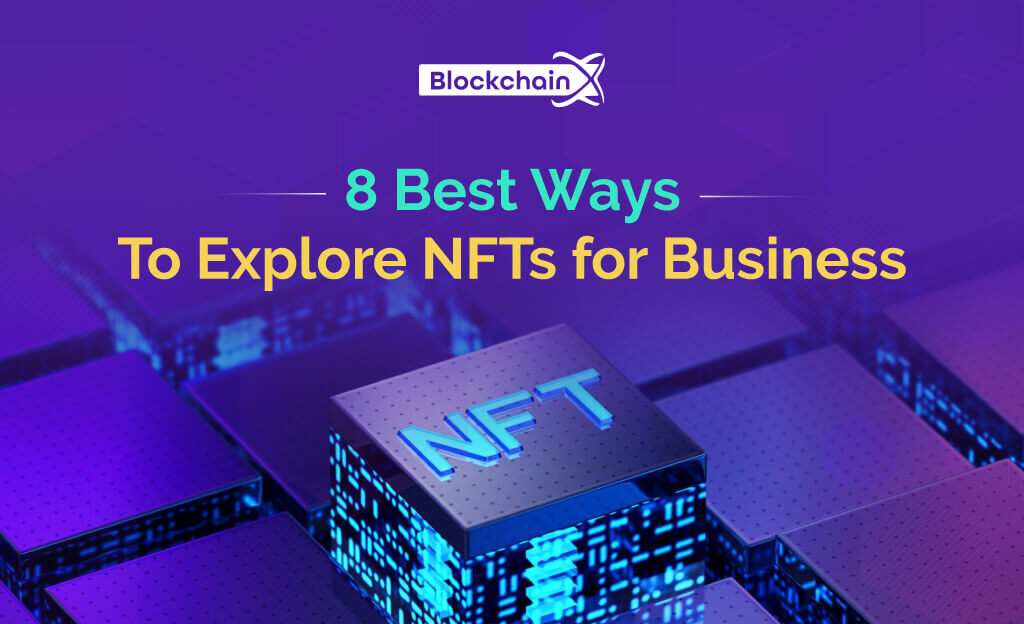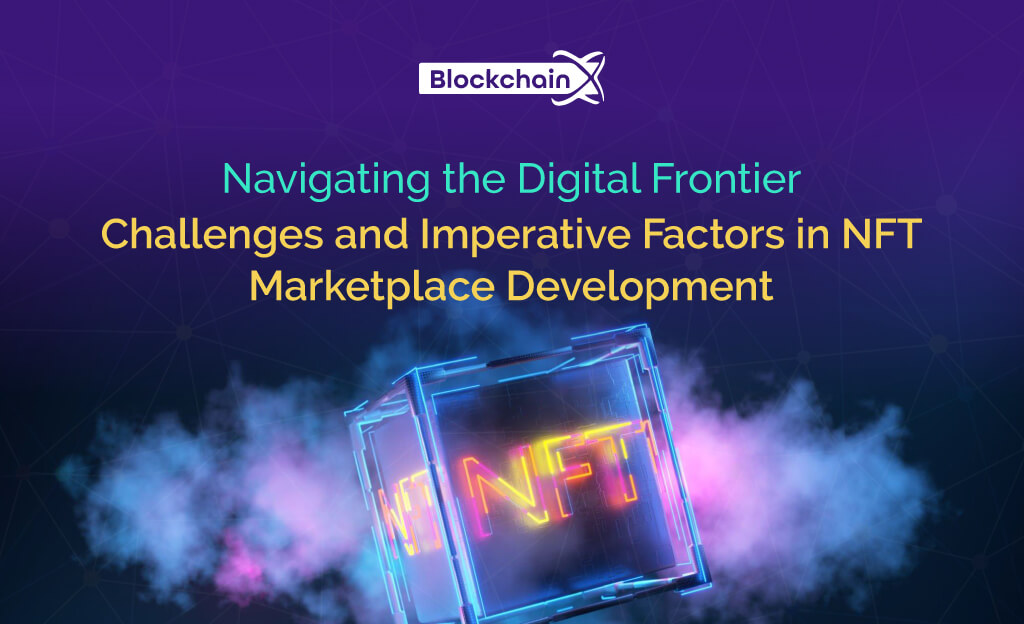
Blockchain technology is one of the most significant technologies that industries are willing to adopt. The healthcare industry is pretty interested in blockchain technology because it leads to more effective research, more efficient processes, increased security, and better patient outcomes. The application of blockchain in healthcare is used for a variety of purposes, including protecting patient data and controlling the supply of pharmaceuticals. Let us in detail dive into the nuances of Blockchian in Healthcare.
Healthcare in Blockchain: A Brief Dive into the Details
Blockchain in the healthcare industry is a revolutionizing move towards data security and transparency. With its potential to revolutionize the healthcare industry, there will be significant improvements in data security, transparency, and efficiency, empowering the sector. This distributed ledger technology is secured, transparent, and tamper-proof. Concerning record-keeping, the networks make it ideal for storing and managing sensitive patient data.
With the presence of multiple stakeholders in the system, the healthcare industry is complex. Doctor details, hospital details, insurance, government agencies, and many other data are all interconnected. Invading blockchain technology into healthcare streamlines the process and eases easy communication throughout the system, making it convenient at all times, especially when handling critical patient care, as everything is made simply convenient to handle.
The WHO’s report on 30% of medicine counterfeited in Latin America, Africa, and Asia shows the loose threads of the system. By bringing in blockchain technology for healthcare, it reduces the risk of data breaches and fraud and creates a very efficient system. Also, it helps patients handle their private information and access their medical data with ease.
How is Blockchain going to help the Healthcare industry?
Compared to other industries, the blockchain industry is developing very slowly. In today's fast-moving world, the processes followed by hospitals are antiquated. It has been often stated by researchers that the industry lacks technology. The statement is quite contradictory to the fact that some of the most educated and skilled professionals work in this industry. The world of medicine provides a new lease on life for humans. If you take a closer look at this industry, you will soon find out that it is filled with vertical modernization. Many of the hospitals still prefer using pen and paper to jot down patient histories and other things. This indicates that they are still using vertical modernization, and it will take time for them to accept horizontal modernization.
Blockchain Technology In Healthcare Is a Horizontal Modernization
The data recorded in a blockchain remains unchanged and is handled by a network of computers. The computers are not owned by any individual or business firm. All the blocks of data are linked to one another and protected. The Blockchain Technology In Healthcare has gained immense popularity among businesses. This is because the processes followed by the blockchain are decentralized, and there is no third party involved. The storage of data is cryptographic in nature. As the blockchain is unchangeable, no one has the right or access to get a hold of the data. The data stored in the blockchain can be stored.
Different Ways Blockchain Transforming the Healthcare Industry
Here are the top 5 potential ways blockchain is transforming the healthcare industry.
1. Securely Handling Patient Data
Patient data is highly sensitive and healthcare providers focus on protecting them from breaches and leaks. Blockchain with its secure and decentralized system contributes to storing and sharing patient data. By encrypting the data and storing it on distributed edgers it's virtually impossible to hack.
2. Medications and Medical Devices Provenance Tracker
Ensuring patient safety, and security, and maintaining the organization's reputation, medications, and medical device authenticity is a serious problem, and it is fairly impossible to track. Bringing Blockchain into the scene, it has made it possible to track the provenance of medications and medical devices from the point of manufacture to the point of use. Therefore ensuring genuine service rendered through genuine provenance.
3. Streamlining Clinical Trials
Clinical trials play a vital role in drug development which is expensive and time-consuming at the same time. Intruding blockchain in the process of healthcare, it reduces a lot of paperwork and makes things faster and more efficient.
4. Checkin Up On Fraud And Errors
Healthcare fraud and errors cost billions of dollars each year in the system. Blockchain can be used to reduce this fraud and errors by creating a transparent and maintained immutable record of all healthcare transactions that is easy to access yet restricted to alter. This makes it hard for criminals to commit fraud and helps ensure that patients' records are safe.
Empowering Patients
Blockchain empowers patients by giving them more control over their data. Patients can choose to share their data with specific healthcare providers, set constraints and track them. This helps in improving patient trust in the healthcare system by giving them more control over their decisions.
How is Blockchain Technology For Healthcare A Decentralized Process?
Decentralization is transparent in nature. Moreover, it builds trust in the minds of the users. In the earlier days, humans lived in caves for their survival. The barter system was our first system of exchange. It was not a very complex process. As time progressed, business became more complex. People began trusting banks rather than other individuals. As time moved on, banks started failing in their nature of business. The customers started losing faith, which ultimately led them to search for an online platform that would take care of financial transactions. The data accumulated inside the blockchain is stored in numerous storage spaces. Several computers operate within the network, which holds all the copies of the saved data.
Interoperability in the Healthcare industry
Interoperability is a complex situation in the healthcare industry. Over the years, patients as well as the authorities have faced serious complexity when it comes to interoperability. Recognizing patients is a conflicting situation when it comes to interoperability. In addition to this, the information remains blocked due to useless interoperability.
Dissatisfaction with recognizing patients
Since time immemorial, there has been no absolute guide to recognizing patients. International bodies have been working on this for decades now. So the healthcare authorities thought of introducing electronic health records for patients. Such a system in the earlier days led to ultimate chaos, and patients were left ill-treated.
Obstruction in the path of information
The blogging of data has caused chaos in the healthcare industry. When it comes to the healthcare industry, it is often said that obstruction in the path of information seems unreasonable. Information is blocked without any valid reasons. Blocking of data can sound reasonable when it comes to exchanging reports. The main reason behind the blocking of information is something else. Hospitals do not want to lose track of their patients. The entire process of data sharing must be kept transparent so that the data transferred can be tracked.
Public Blockchains
Public blockchains are very common in nature. Blockchains like Bitcoin, Ethereum, etc. are open to all. Moreover, a reward in the form of an incentive is provided to all the participants who take part. The blocks in these public networks do not have enough space. The consensus mechanism is really important, but it is a waste of money for this industry. Lastly, medical institutes hold very crucial data in their systems. Why on earth would they want the data to be shared with any third party? Therefore, a public chain sounds impossible for the healthcare industry.
Private Blockchains
Every kind of user is allowed on a public blockchain. However, this is not acceptable when it comes to a private blockchain. A user has to seek permission to gain access to the network. Participants are only allowed if they aren't new to the blockchain ecosystem, their control can be administered, and the user is an entity. Networks can be preserved as soon as any company enters them. Businesses benefit from joining a private blockchain. This includes confidentiality, boosted transactions, and a secured network.
Cryptographic Hash Functions
Transactions serve as input and are processed over a hashing algorithm, thereby producing an output of immovable breadth. This process takes place over financial platforms like Bitcoin. Being deterministic means it does not matter how many inputs you have passed through a hash function; the output remains the same. It would have been really hard to keep track of the different hashes produced every single time.
Private Chains Better While Intruding Blockchain In Healthcare Industry
If there's a hospital, then it would never inherit all the data of the patients. The data of the patients would be stored in the networks within the blockchain. The data will remain completely malware-free and protected. Every patient will be given an ID utilizing which they can be recognized. Blockchain technology can help the healthcare industry to share patient details and generate incentives within the industry. There would be no unnecessary blocking of the information. Significant questions have arisen: what if the information within the industry gets blocked?
Well, blockchain technology has a solution for this as well. Users have permission to take a thorough look at their network. Blockchain technology is transparent. Individuals have full access to check whether their transaction is getting passed or not. When anyone tries to tamper with the data, then the snowball effect comes into effect. There is an exorbitant change in the hash.
Various Blockchain Use Cases in Healthcare
Patient records and data management grant access to healthcare providers as needed, which is accurate and reduces risk.
Interoperability through blockchain gives a standardized and decentralized ledger for health data.
Clinical trials and research streamline the clinical trial process by ensuring transparency and traceability of data with smart contracts.
Drug traceability and supply chain management with blockchain create an immutable record of the pharmaceutical supply chain.
Credentialing and Licensing of Healthcare Professionals in Blockchain simplifies the process of verifying and managing healthcare credentials.
Healthcare payments and billing through blockchain provide a transparent and secure ledger for billing and claim processing.
IoT-enabled healthcare devices using blockchain technology in healthcare enhance the security and integrity of data generated by the Internet of Things (IoT).
Public health surveillance contributes to more effective public health surveillance.
Identity Management and Patient Privacy in Blockchain is a secure solution for patient identity management.
Health insurance claims a process to streamline health insurance processing with blockchain can lead to faster approval.
Benefits Of Using Blockchain Technology In Healthcare
The data stored within the blocks is unchangeable and can be recorded. Patients can now send their vital medical history to anyone else without fear of it being tampered with. Every patient detail stored within the blocks is completely protected. Patients now have access to check out which hospitals are using their data. Patients are rewarded through the reward mechanism for their appropriate behavior.
For example, patients can receive tokens because they have followed the exact diet chart to stay fit and healthy. Various medical institutes can reward them using tokens as their data have served their purpose of research.
Pharmaceutical businesses have to be very careful about their supply chain processes. Many drugs that are prohibited from being sold without a prescription from a doctor are stolen from the warehouse and sold illegally. Blockchain technology will help such companies ensure the smooth delivery of medicines to their destination without them being stolen in the middle of the process. Every process can be tracked through technology.
Every patient receives insurance from the company by claiming it. Most of the time, the claim has been recorded as a fraud claim. With blockchain technology, fraud claims can be eradicated.
Drawbacks of Blockchain Technology In Healthcare
Though blockchain technology will help boost the healthcare industry, not everyone around us supports the authenticity of the technology. John Halamka, a critic who is familiar with the use of blockchain technology, is aware of both the advantages and the disadvantages. He mentions that blockchain technology is not the right place to accumulate a large amount of data.
The technology is not even apt for the reasoning. Apart from this, the transactional process is sluggish. Despite all these disadvantages, blockchain is a huge space where you can store your data without any tension. There is no chance of it being tampered with. This technology is flexible.
Conclusion
Blockchain technology has a wide number of advantages that have now been tried and tested by many industries. If the healthcare industry invests in this technology, then it can reach new heights. The main thing about this industry is that it doesn't lack money. There is a global investment of $8.734 trillion in the healthcare industry, and now the investment in the healthcare industry has reached new heights.
In the year 2020, $7 trillion will be spent on the healthcare industry worldwide. The statistics on investment show that the industry does not lack money. It can comfortably carry out its research work for technological purposes as well. The future of the healthcare industry would be completely decentralized.
The application of blockchain in healthcare is a sky-scraping idea that, during adoption, will help businesses and organizations grow efficiently. We at BlockchainX, a blockchain development company, are invading multiple sectors now, and we are open to helping you render the needful with our expertise. Blockchain and healthcare are a combo with true potential to explode. Step ahead in the market with our services.






Comments